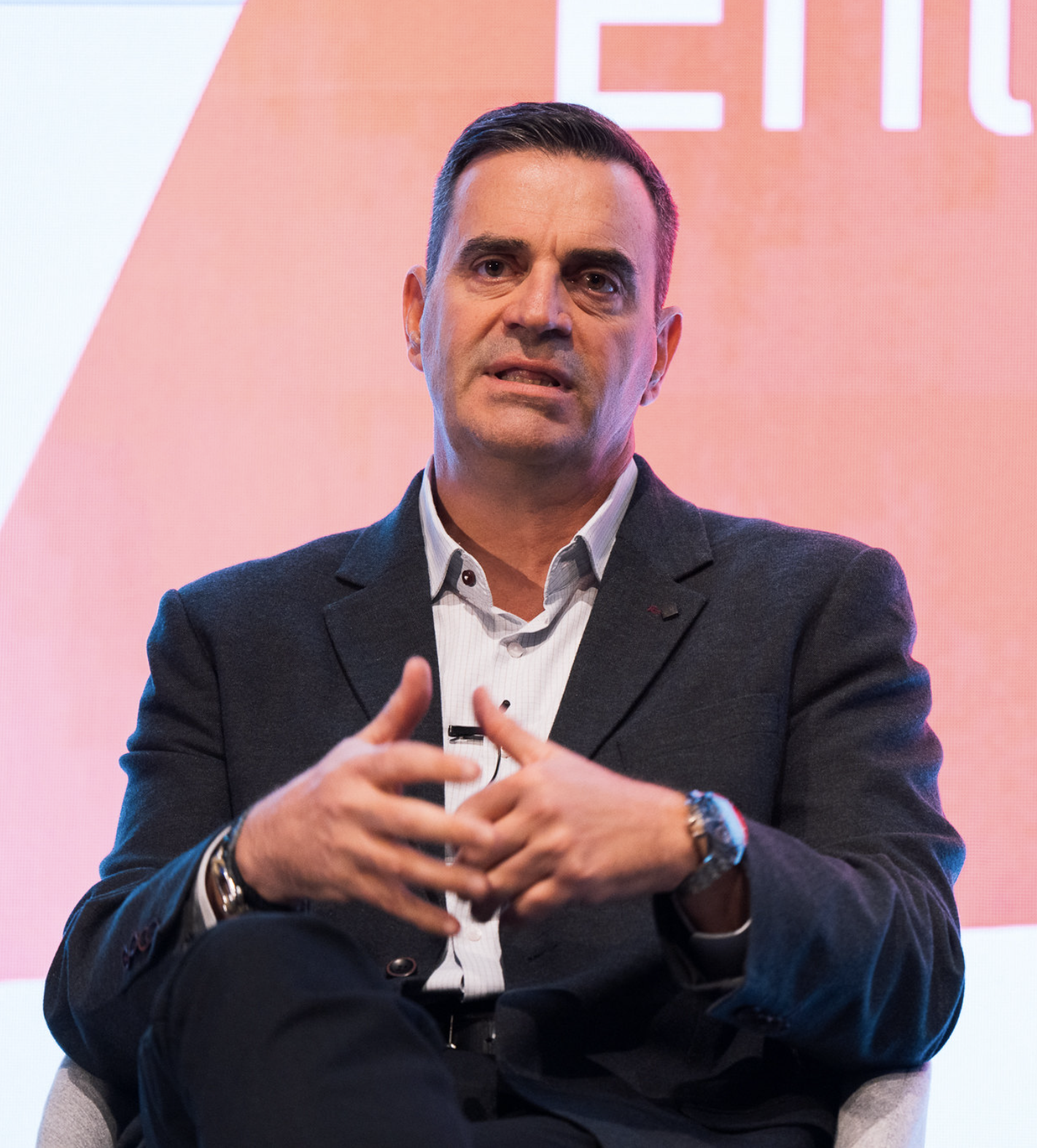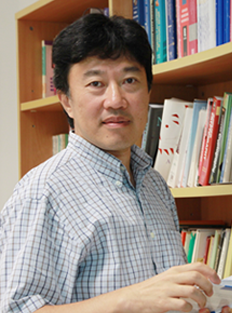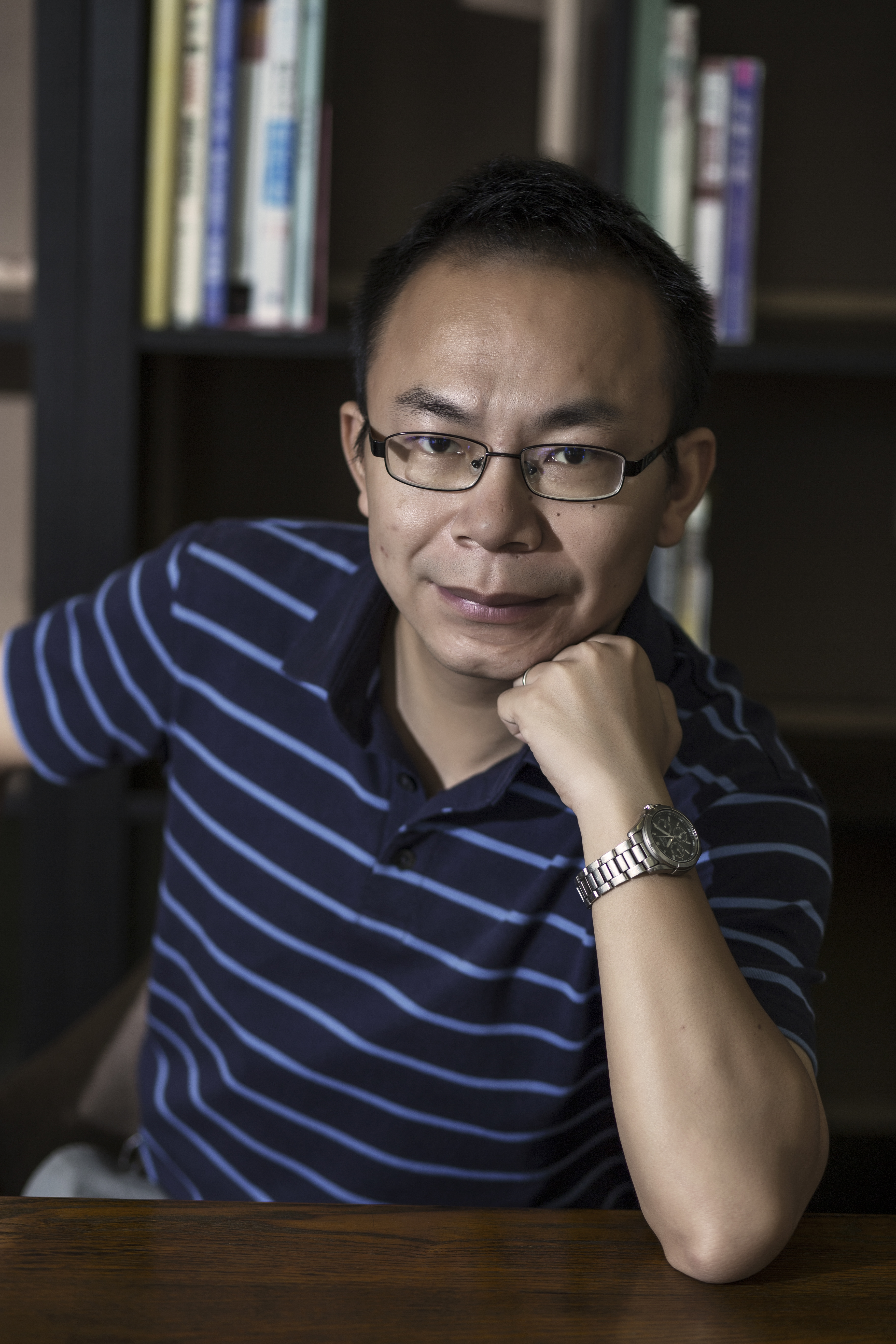Keynote 1
Distributed Control and Optimization of Networked Microgrids
Speaker: Distinguished Professor Qing-Long Han, Member of the Academia Europaea (The Academy of Europe), IEEE Fellow, IFAC Fellow, IEAust Honorary Fellow, CAA Fellow, Pro Vice-Chancellor (Research Quality), Swinburne University of Technology, Australia

Abstract: With the widespread integration of renewable distributed energy sources such as wind generation, photovoltaic and solar panels, a traditional electrical network has been experiencing a huge revolution towards a smart grid in various terms of generation, transmission, distribution and usage, and so on. Such a revolution poses new theoretical and technical challenges in operation and management of smart grids. To address these challenges, a multi-agent system-based strategy is developed to address control and optimization issues in smart grids, showcasing its strong ability in improving efficiency, reliability and scalability. In this keynote talk, some backgrounds on smart grids from the perspective of multi-agent systems are introduced. Second, a distributed secondary control scheme with an event-triggered communication mechanism is presented to ensure frequency regulation and active power sharing of AC islanded microgrids while significantly reducing the utilization of communication resources. Third, a multi-objective distributed optimization method is provided to address current sharing and voltage regulation in DC microgrids. Finally, some challenging issues are discussed for future investigation.
Bio: Professor Han is Pro Vice-Chancellor (Research Quality) and a Distinguished Professor at Swinburne University of Technology, Melbourne, Australia. He held various academic and management positions at Griffith University and Central Queensland University, Australia. Professor Han was awarded the 2024 IEEE Dr.-Ing. Eugene Mittelmann Achievement Award (the Highest Award in Industrial Electronics), the 2024 Chinese Association of Automation (CAA) Science and Technology Achievement Award (the Highest Achievement Award of CAA in Automation, Information and Intelligent Science), the 2021 Norbert Wiener Award (the Highest Achievement Award in Systems Science and Engineering, and Cybernetics), and the 2021 M. A. Sargent Medal (the Highest Achievement Award of the Electrical College Board of Engineers Australia). He was the recipient of the IEEE Systems, Man, and Cybernetics Society Andrew P. Sage Best Transactions Paper Award in 2019, 2020, and 2022, respectively, the IEEE/CAA Journal of Automatica Sinica Norbert Wiener Review Award in 2020, and the IEEE Transactions on Industrial Informatics Outstanding Paper Award in 2020. Professor Han is a Member of the Academia Europaea (The Academy of Europe). He is a Fellow of the International Federation of Automatic Control (FIFAC), a Fellow of the Institute of Electrical and Electronics Engineers (FIEEE), an Honorary Fellow of the Institution of Engineers Australia (HonFIEAust), and a Fellow of the Chinese Association of Automation (FCAA). He is a Highly Cited Researcher in both Engineering and Computer Science (Clarivate). He has served as an AdCom Member of IEEE Industrial Electronics Society (IES), a Member of IEEE IES Fellows Committee, a Member of IEEE IES Publications Committee, Chair of IEEE IES Technical Committee on Network-Based Control Systems and Applications, and the Co-Editor-in-Chief of IEEE Transactions on Industrial Informatics. He is currently the President-Elect, an Executive Board Member, and a Steering Committee Member of Asian Control Association (ACA). He is currently the Editor-in-Chief of IEEE/CAA Journal of Automatica Sinica.
Keynote 2
Have your data and share it too: Private data analytics at scale
Speaker: Professor Minos Garofalakis, Member of the Academia Europaea, ACM Fellow, IEEE Fellow, Director of the Information Management Systems Institute at ATHENA Research Center, Professor at the School of ECE, Technical University of Crete, and Co-founder & Director of Research at Agora Labs.

Abstract:As the importance of data protection and privacy legislation is increasingly recognized worldwide, protecting sensitive information and individual privacy presents a major challenge for modern big data analytics systems. The ever-growing list of major data breaches (and associated fines) clearly demonstrates the inadequacy of earlier ad-hoc solutions to the problem, as well as the need to effectively bridge legal and technical/systems interpretations of data privacy. In this talk, I will present different modern privacy enhancing technologies (including federated learning, secure computing, differential privacy, and synthetic data), and discuss how they can enable formal, cryptographic notions of privacy in large-scale data analytics. The focus will be on our recent efforts to build systems and tools to support querying and machine learning over sensitive medical data. Several open challenges and directions for future research will also be discussed.
Bio: Minos Garofalakis is the Director of the Information Management Systems Institute (IMSI) at the ATHENA Research Center and a Professor at the School of ECE at the Technical University of Crete (TUC). He also works as a (part-time) senior research consultant for Huawei ISR/ERC and is the Co-founder and Director of Research at Agora Labs, a startup company bringing state-of-the-art data privacy technologies to the healthcare domain. Minos received the MSc and PhD degrees from the University of Wisconsin-Madison, and previously held senior/principal researcher positions at Bell Labs (1998-2005), Intel Research Berkeley (2005-2007), and Yahoo! Research (2007-2008); in parallel, he held an Adjunct Professor position at the EECS Department of UC Berkeley (2006-2008). Between 2/2022-2/2023, he also worked as a consulting Senior Principal Scientist for Amazon Web Services (AWS). Minos’s research interests lie in the broad area of Big Data Analytics. He has published over 170 papers that have received more than 17,000 citations (h-index=70) according to Google Scholar and is listed as an inventor in more than 35 patent filings (29 issued patents) for companies such as Lucent, Yahoo!, AT&T, and Huawei. Minos is an ACM and IEEE Fellow, a Member of Academia Europaea, and a recipient of several awards, including the TUC “Excellence in Research” Award (2015), the Bell Labs President’s Gold Award (2004), two Best Research Paper Awards (VLDB’2024, ICDE’2009), and ten "best of" conference paper selections.
Keynote 3
Advances in Approximate Nearest Neighbor Search
Speaker:Professor Jeffrey Xu Yu, ACM SIGMOD Executive Committee Member, IEEE TKDE Associate Editor, VLDB Journal Associate Editor, ACM TODS Associate Editor, WWW Journal Associate Editor, The Chinese University of Hong Kong, China

Abstract: Recent breakthroughs in deep learning, particularly embedding models, have revolutionized how we represent diverse data types-from images to text chunks-by transforming them into high-dimensional vectors that capture semantic information. Consequently, k-approximate nearest neighbor (k-ANN) search in high-dimensional spaces has become a critical operation across domains like information retrieval, recommendation systems, and large language models. In addition, the rise of retrieval-augmented generation (RAG) has further amplified the importance of efficient k-ANN search, as it serves as a core component for grounding LLMs in relevant data. In this talk, we explore new techniques to enhance k-ANN performance for large-scale, high-dimensional vector databases, addressing scalability, accuracy, and speed challenges in modern applications.
Bio: Dr. Jeffrey Xu Yu is a Professor in the Department of Systems Engineering and Engineering Management at The Chinese University of Hong Kong. His primary research interests include graph algorithms, graph processing systems, graph neural networks, and query processing in database systems. Dr. Yu has held several prestigious roles, including Information Director and member of the ACM SIGMOD Executive Committee (2007–2011), Associate Editor of IEEE Transactions on Knowledge and Data Engineering (TKDE) (2004–2008), and Associate Editor of the VLDB Journal (2007–2013). He currently serves as an Associate Editor for ACM Transactions on Database Systems (TODS) and the WWW Journal, among others. Dr. Yu has been actively involved in the organization and program committees of numerous international conferences and workshops. He has served as PC Co-Chair for conferences such as APWeb'04, WAIM'06, APWeb/WAIM'07, WISE'09, PAKDD'10, DASFAA'11, ICDM'12, NDBC'13, ADMA'14, CIKM'15, Bigcomp'17, DSAA'19, CIKM'19, and DASFAA'20, and as Conference General Co-Chair for APWeb'13, ICDM'18, and ADC'22.
Keynote 4
Beyond Relational: Query Engine Paradigms in Native Graph Databases
Speaker: Professor Lei Zou, IEEE TKDE Associate Editor, DASFAA Best Paper Awardee, Peking University, China

Abstract:
Due to the growing prevalence of graph-structured data, graph databases have garnered substantial research interest in recent years.
In this talk, I will present an efficient approach to building a graph query engine from the perspective of native graph databases.
The term "native" in this context refers to two key components: native storage and a native query engine. This talk primarily focuses
on the latter, though it will briefly touch upon storage design.
We first introduce a systematic architecture for native graph query engines, which is built upon three core query constructs: subgraph
matching queries (SMQs), regular path queries (RPQs), and conjunctive regular path queries (CRPQs). We review prior work and present
our optimization techniques for these query constructs. To unify the field's diverse approaches, we propose a cohesive framework
for graph query processing that bridges gaps between existing methodologies and provides a comprehensive workflow analysis.
As a key contribution, we design a unified query execution plan representation and an evaluation and optimization framework for SMQs,
RPQs, and CRPQs, which form the foundation of native graph query engines.
Finally, we implement our techniques in gStore.GP, a recently developed native graph database that supports both property graphs
and RDF graphs through a unified storage and query engine.
Bio: Lei Zou is a Professor at the Wangxuan Institute of Computer Technology, Peking University. His research interests include graph databases, knowledge graphs, with a focus on graph-based RDF data management, natural language question answering over knowledge graphs, and software/hardware co-design for graph computing. He has published over 60 papers in top-tier venues, including SIGMOD, VLDB, ICDE, TODS, TKDE, and The VLDB Journal. His work has been supported by NSFC (National Natural Science Foundation of China)-Young Excellent Talent Project, NSFC Key Program as well as the National Key Research and Development Program of China. Additionally, he received the Newton Advanced Fellowship from the UK Royal Society and the Best Paper Award at DASFAA 2018. He served as an Associate Editor for IEEE Transactions on Knowledge and Data Engineering (TKDE) (2019-2024) and Area Chairs for International Conference on Data Engineering (ICDE) 2021, 2025 and 2026 as well as PC Co-Chair of International Conference on Web Information Systems Engineering (WISE 2021).